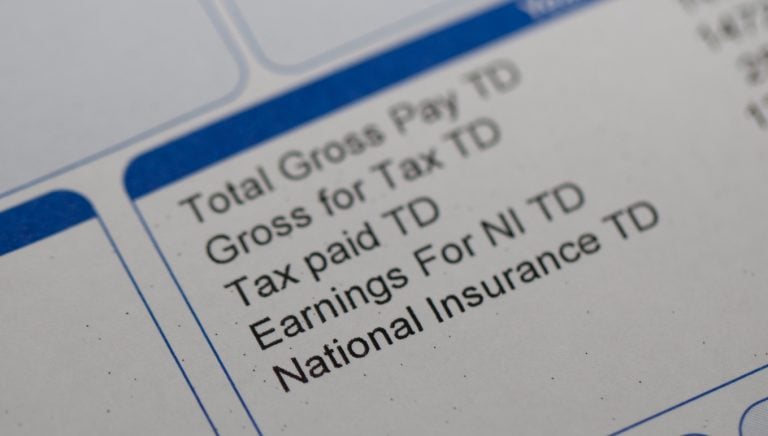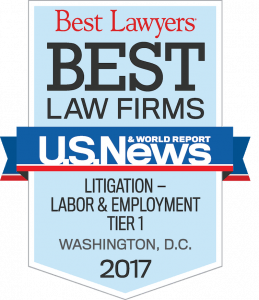
If you work in Maryland and believe your employer failed to pay you the correct amount of money for the work you performed, you may be able to recover damages under the Maryland Wage Payment and Collection Law (MWPCL) (Md. Code, Lab. & Employ. Art., Sec. 3-501, et seq.) and/or the Maryland Wage and Hour Law (MWHL) (Md. Code, Lab. & Employ. Art., Sec 3-401, et seq.).
Other laws, including the Fair Labor Standards Act (FLSA), may also apply to your wage claim as well.
What is the difference between the MWPCL and MWHL?
The Maryland Wage and Hour Law “governs primarily minimum wages and maximum hours, whereas the [Maryland Wage] Payment and Collection Law sets specific terms for payment mandated elsewhere in the [Maryland] Wage and Hour Law.” Campusano, et al. v. Lusitano Construction, LLC, et al., 208 Md.App. 29 (2012).
The Maryland Wage and Hour Law is similar to the federal Fair Labor Standards Act (FLSA), but it does contain some key differences that are important to discuss with an experienced employment lawyer.
 What types of wage payment issues does the MWPCL cover?
What types of wage payment issues does the MWPCL cover?
The MWPCL generally covers issues related to an employee who believes their employer has illegally withheld or refused to pay the full amount of wages/overtime/bonus/tips/money due.
Some of the requirements to file a claim under MWPCL include that you must have performed at least 50% of your work in Maryland.
According to the Maryland Department of Labor, Licensing, and Regulation, below is a sample of the types of issues about which you may file a claim:
- did not receive paycheck(s) within 2 weeks after scheduled payday;
- overtime, tip, and commission payments;
- not being paid for breaks at work, travel time, or training;
- unauthorized deductions from paychecks;
- payments once you leave employment;
- incorrect rate of payment or non-payment of wages
What counts as “work” under the MWPCL?
According to the Maryland Department of Labor, Licensing, and Regulation:
Work is service performed by an employee at the request and under the control of an employer and, therefore, on the employer’s time.
Work is compensable—that is, something for which an employee is entitled to be paid.
Also, volunteer service generally does NOT count as “work” under the MWPCL.
Are you an “employee?”
Another factor to consider under the MWPCL is whether you are considered an “employee” or an “independent contractor.” An independent contractor is NOT covered by the MWPCL.
Maryland’s Department of Labor, Licensing, and Regulation explains the difference between an employee and independent contractor as follows:
The “economic reality” of the work relationship determines the worker’s status, meaning is the worker economically dependent on an employer who can allow or prevent an employee from working? Thus, if two individuals, in fact, stand in the relation of employer and employee to each other, it is irrelevant that the worker has agreed to be called an independent contractor. The measurement, method, or designation of compensation is also of lesser importance, if the relationship of employer and employee in fact exists.
And the Maryland Court of Appeals has held that the “economic realities” test governs the definition of “employer” under the MWPCL. See Campusano, et al. v. Lusitano Construction, LLC, et al.,, 208 Md.App. 29, 38 (2012).
What counts as a “wage” under the MWPCL?
According to the Maryland Department of Labor, Licensing, and Regulation:
A “Wage” is payment or compensation earned by an employee for work performed under an employer’s direction, or with the employer’s knowledge or consent. Generally, wages are paid as currency (U.S. Dollars) representing a length of time worked…
A “wage” may include the following:
- Bonus: such as a monetary reward for finishing a special project or completing a length of employment.
- Commission: generally a percentage of the sale price for goods/services that the employee sold for the employer and/or “some promised amount of money as a reward for making the sale”
- Fringe Benefit.: for example, vacation and sick leave
- Overtime
- Any Other “Remuneration” (compensation) promised for work performed. Examples could include room and board, materials and inventory, etc
What are my options for filing a MWPCL claim for unpaid wages?
You have three options if you believe your employer has wrongfully withheld pay for the work you performed:
- File a claim with Maryland Department of Labor, Licensing, and Regulation. NOTE: you must first request that your employer pay you the owed wages and your request should be in writing. Visit the Maryland Department of Labor, Licensing, and Regulation’s website for more information on how to file a claim.
- File a lawsuit in court. If the court finds your employer illegally withheld wages from you, the court may award up to 3 times the amount of wages owed as well as reasonable attorney’s fees.
- File criminal charges. In certain cases, it may be a criminal offense for your employer to withhold your wages.
You may only choose one of these 3 options so it is very important to talk with an experienced employment attorney as quickly as possible to discuss your legal options.
 Hiring an experienced employment discrimination lawyer
Hiring an experienced employment discrimination lawyer
Hiring a proven and effective advocate is critical to obtaining the maximum recovery in a Maryland employment case. Eric Bachman, Chair of the Firm’s Discrimination Practice, has substantial experience litigating precedent-setting individual and class action cases. His wins include a $100 million settlement in a disparate impact Title VII class action and a $16 million class action settlement against a major grocery chain. Having served as Special Litigation Counsel in the Civil Rights Division of the Department of Justice and as lead or co-counsel in numerous jury trials, Bachman is trial-tested and ready to fight for you to obtain the relief that you deserve.
Bachman writes frequently on topics related to promotion discrimination, harassment, and other employment discrimination issues at the Glass Ceiling Discrimination Blog.
U.S. News and Best Lawyers® have named Zuckerman Law a Tier 1 firm in Litigation – Labor and Employment in the Washington DC metropolitan area. Contact us today to find out how we can help you.







